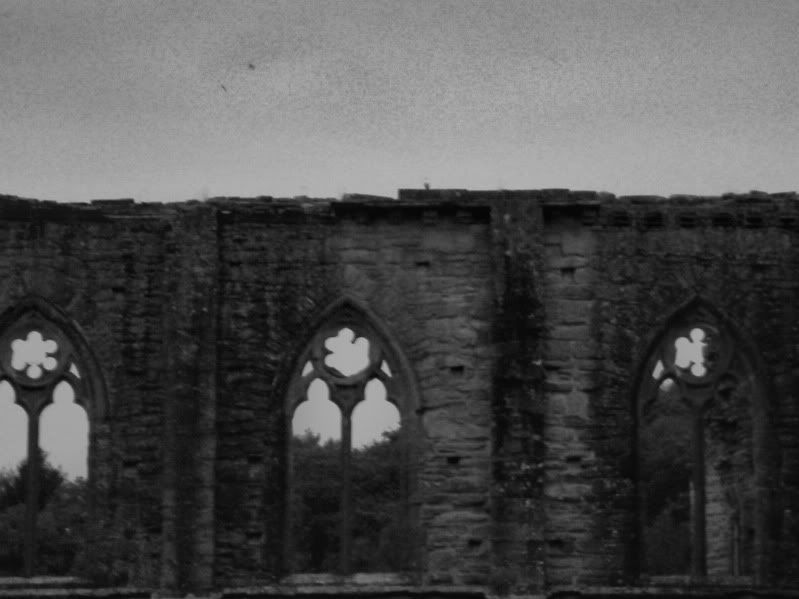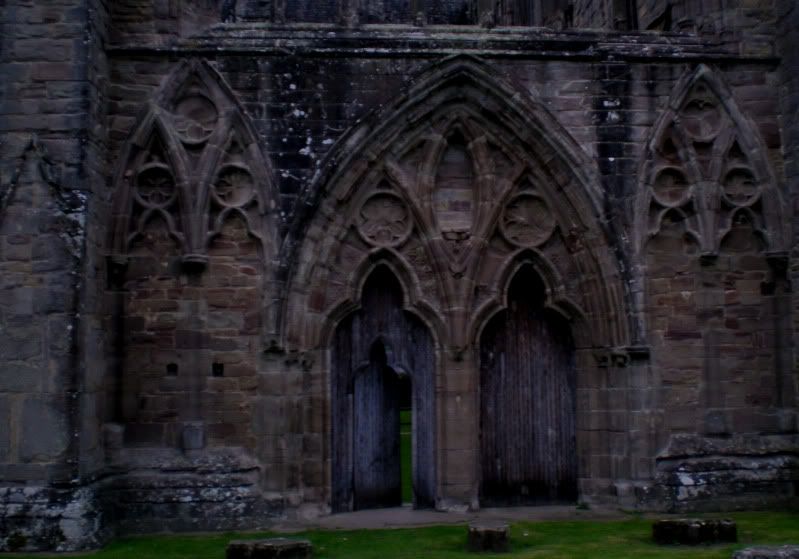Hi All--Back from my time communing with nature in Yosemite and ready to talk Wordsworth again. Lots of good thoughts to respond to, but first I thought I would share some photos of Tintern Abbey and its environs that I took in the twilight time of my one day in Wales last September. The ruins and the surroundings are still much as they were in Wordsworth's time and, apart from the presence of a paved road, motor vehicles and a few other such modern conveniences, my impression was that the area is still very much a "wild secluded scene" dotted by "pastoral farms,/Green to the very door." Wish I had some more of the natural surroundings, which are quite beautiful, but here are a few of the Abbey and the area right next to it, which I snapped before darkness fell. I knew it was a ruin before I went there, but I was unprepared for the unique beauty with which the ruined abbey merges with the landscape and for the wild natural beauty of that landscape. The merging of passing human endeavor with the natural world is quite striking, even if you haven't read the poem. How many, if any, other places in the world can you look through the stone frame of a gothic window to see glimpses of green hill and sky?












 Reply With Quote
Reply With Quote


